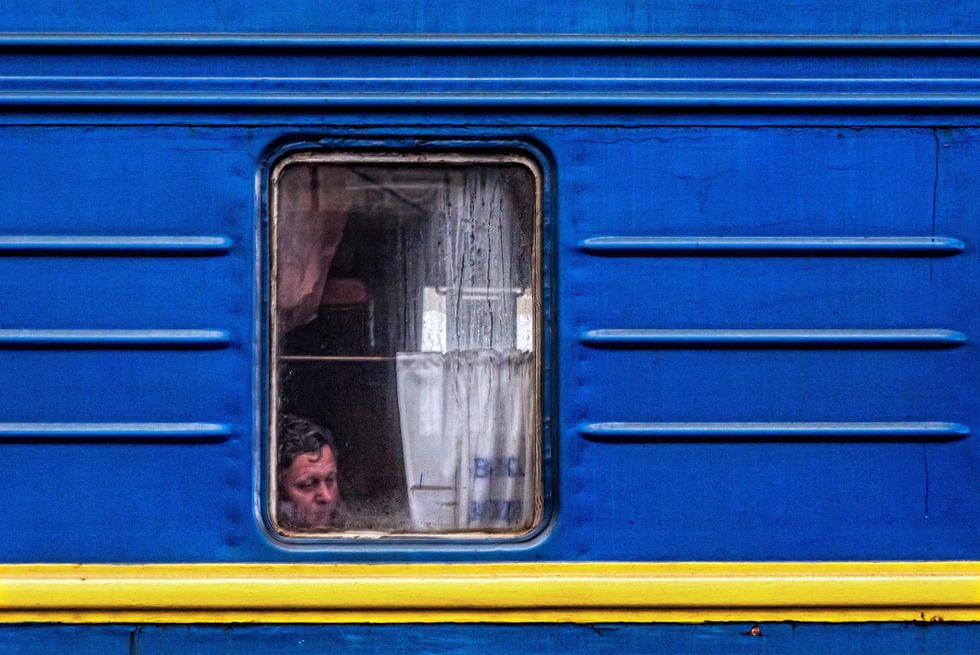Russian Society at War: From a Closed-Off Place of Guilt and Shame
From the Series: Russia’s War on Ukraine
From the Series: Russia’s War on Ukraine

Greeting formulas shouldn’t be taken literally, but these days I feel uncomfortable saying an ordinary Russian “good day”; the day is not good. Anthropologists are sensitive to the local use of categories, and state propaganda contributes to a distortion of the meanings of a variety of words. The media employs terms like nationalism, Nazism, and fascism in special ways, attempting to reestablish “a unity of Slavonic nations” and refusing to recognize Ukrainian national identity. There is certain logic in the coherent and emotional narrative of the Russian media, which treats events in terms of self-defense of Russia against NATO expansion and imagined military threat from the West. It also puts forth the idea that the Ukrainian nation is nonexistent, and that Ukraine is a failed state led by drug-addicts and is unable to oppose Russian military action aimed at saving the Russian-speaking minority. The problem with this narrative is that the premises are false, the goals are ephemeral, and the results achieved are the opposite of the intended outcome. Putin has contributed to Ukrainian nation-building and to the expansion of Ukrainians’ sense of nationhood more than the Ukrainians themselves could do without external aggression. For many years, speaking in Russian used to be totally unproblematic in Ukraine, and a southern variant of the Russian language could theoretically become standardized, much like American English in relation to British English. Nothing like this is possible since the annexation of Crimea.
During the rule of the first President of Russia, Boris Yeltsin, there was no official state ideology. These days, a conservative turn that emphasizes stability based on so-called “traditional values”—or spiritual staples to unite Russian society—is a key to Putin’s ideology. The conservative trend developed slowly, but the invasion of Ukraine hurled Russia into an abyss surprisingly fast. The independent media that were available online a week ago are not there anymore or have announced that they abstain from providing news or comments about the war in Ukraine. On March 5, a law was adopted according to which any publicly expressed opinion regarding the war that the authorities considered to be fake might cost the author up to fifteen years in prison.
Today, Russia is closing itself off from the outside world, and views itself as a besieged fortress. In Soviet secondary school, history class includes topics such as “the Republic encircled by enemies (1918–19).” What seemed odd is the fact that the Bolsheviks wished their country to be defeated during the Great War. They worked to turn the country and its population against the Tsarist government, claiming that it was an Imperialist war. These days, we can see a real Imperialist war propelled by irredentism at the ruins of an empire, and many of us wish for the defeat of Putin in this shameful enterprise.
A war is always a cause of migrations: hundreds of thousands of refugees, soldiers brought from afar, new populations arriving to conquered lands, people who emigrate. My summer house in the Ukrainian countryside is now a shelter for refugees—it houses people whose homes have been destroyed by war. A new wave of emigration from Russia desperately competes to use the last remaining options: Yerevan, Tbilisi, or Istanbul. These are the most in-demand destinations that are still available for Russian travelers without visas. Charter flights from Moscow to Yerevan are full of the young creative class with one-way tickets. This brings to mind the so-called “philosopher’s steamboat” that in 1922 transported intellectuals expelled from Soviet Russia—a measure that seems very humane in view of later developments of repressive Soviet policy.
The postwar world will have to deal with long-term consequences of today’s events in all domains of life, but among them is the fact that Russian society is divided. Many of my Facebook friends try to maintain their integrity by unfriending those who support the war. According to a recent poll, Putin’s military policy is supported by some 60 percent of the population; this share decreases with education level and increases with age and tendency to watch state-controlled TV. Some people are trying to transfer money—against prohibition—to charities supporting Ukrainian refugees and people affected by the Russian offensive. Some people collect money to help refugees from Donbass—that is, those people who were preemptively evacuated by the authorities of the unrecognized republics. The topic of the war destroys friendships and makes differences of opinion across the generation gap within families feel irreconcilable and intolerable.
Civil society requires a dialog with people who are of different opinions. A colleague of mine has remarked that in her ethnographic fieldwork she used to talk to nationalists, anti-Semites, and, generally, with people whose convictions sometimes seem appalling. The emotional charge of this divide is so intense it is difficult to communicate. However, by refusing to engage in dialogue, we simultaneously refuse to understand why they hold such opinions.
This sentiment applies to our colleagues and peers as much as our informants. Leaders of prominent Russian academic institutions—including Valery Tishkov of the Association of Anthropologists and Ethnologists of Russia; Dmitry Funk of the Russian Academy of Sciences Institute of Anthropology and Ethnology; and Andrei Golovnev of Kunstkamera—have published a statement refusing to support an open letter by some social scientists condemning the invasion. Instead, the authors refer to “armed activities for protection of the population of Donbass,” not contradicting the party line, probably motivated by fear of being accused of disloyalty rather than out of sincere support for the Russian government.
There are now very high risks for those who express dissent in Russia. Yet at the same time, we, anthropologists and others fully against the war, feel deep guilt and shame at the actions of our Russian authorities.